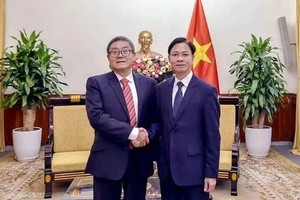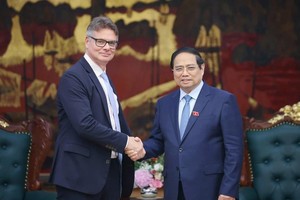China, the world’s biggest supplier of rare earths, almost doubled its export quota for the second half from a year ago, a change the European Union said actually adds restrictions to overseas shipments.
Less than two weeks after the World Trade Organization said Chinese limits on raw-material exports break global trade rules, the country yesterday raised the quota for 26 companies to 15,738 metric tons. That compares with 7,976 tons a year earlier and brings the limit to 30,184 tons for 2011, little changed from 30,258 tons in 2010, government figures show.

China produces at least 90 percent of the world’s rare earths, used in Boeing Co. helicopter blades, Raytheon Co. (RTN) missiles, Toyota Motor Corp. hybrid cars and wind turbines. China curbed output and exports since 2009 to conserve resources and protect the environment, prompting users such as Japan to seek other sources. Ferrous alloys containing rare earths have been added to the quotas, said Lynas Corp.
“The quota is actually being tightened because more products will compete for limited allowances,” said rare-earth developer Lynas in a statement from Sydney today. There is at least a 7 percent cut in the released 2011 export quota compared with 2010 after taking the new material into account, it said.
The EU criticized the latest quota as bringing about no “noticeable change” in the amount of rare earths that China will ship to the 27-nation bloc. The addition of ferrous alloys means the quota is actually being tightened because more products will compete for limited allowances, said John Clancy, the EU’s trade spokesman.
“This is highly disappointing and the EU continues to encourage the Chinese authorities to revisit their export- restrictions policy to ensure there is full, fair, predictable and non-discriminatory access to rare-earth supplies as well as other raw materials for EU industries,” Clancy said in a statement from Brussels yesterday.
China takes factors such as protection of domestic resources, and domestic and international demand when setting export quotas for rare earths, Commerce Ministry spokesman Yao Jian said at a regular briefing in Beijing today. The category covers 17 chemically similar metals include lanthanum, cerium and neodymium. The composite price of eight rare earths found at the Mount Weld project in Western Australia surged to $223.16 a kilogram (2.2 pounds) on July 11 from $92.84 on March 31 and $11.59 in 2007, according to figures on Lynas’s website.





)


















